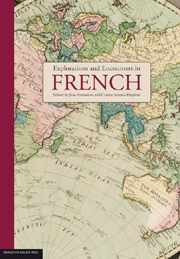Book contents
Foreword and Acknowledgements
Published online by Cambridge University Press: 05 June 2012
Summary
The Federation of Associations of Teachers of French in Australia is a young federation whose genesis goes back to 1996. Australia had active associations of teachers of French in every state but with relatively little contact between them, other than the exchange of newsletters. There was, however, a national link amongst the universities whose association, the Australian Society of French Studies (ASFS), held an annual conference.
1996 saw the World Congress of the Fédération Internationale des Professeurs de Français (FIPF) in Tokyo. At that time, the South Australian French Teachers Association was a member of the FIPF. Although SAFTA only represented South Australia, it was perceived on the international scene to be the voice of teachers of French in Australia. Elected president, in Tokyo, of the Commission Asie-Pacifique of the FIPF, I had the pleasure of attending – until the next world congress in 2000 in Paris – the annual meetings of the Conseil d'Administration of the FIPF. At these council meetings, it became apparent that the preferred mode of operation was a national body to represent the interests of French teaching in each country, as it made communication much easier.
Thus the idea took shape; I contacted all associations of teachers of French in the states of Australia to launch the concept of an affiliation. Each association would continue to exist, keep its independence, but gain the solidarity of being a national body and achieve a national profile.
- Type
- Chapter
- Information
- Explorations and Encounters in French , pp. 7 - 12Publisher: The University of Adelaide PressPrint publication year: 2010



